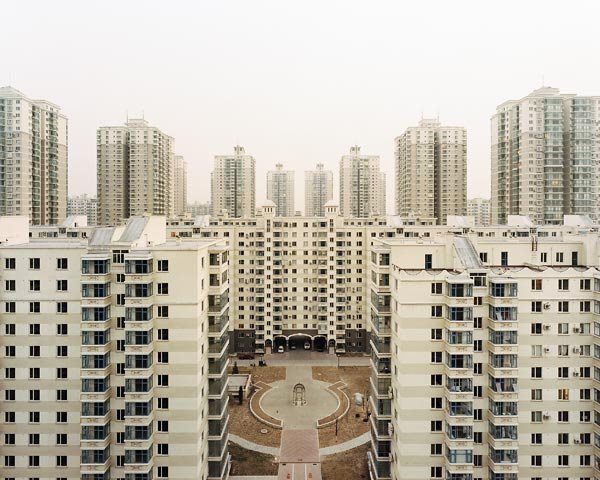A salesperson robotically waving a wand that distributed a light mist, another dispassionately demonstrating a spinning top to a couple of curious African men, two of a handful of customers, while a television showed a program about the Olympics. On display were jade sculptures, silky qipao, a paltry assortment of tea, and a selection of benign English-language paperbacks. All the typical tchotchkes of friendship – that is, diplomatic, state-sanctioned friendship: business as usual at the Beijing Friendship Store.
Just when things couldn’t look any more stereotypical, the ever-ebullient Mark Rowswell – known to television audiences as Dashan – strolled off the escalator and onto the second floor. Somehow it made sense: China’s most famous laowai shopping at Beijing’s most famous laowai institution.
Built in 1964, the Friendship Store catered exclusively to tourists and diplomats, who could find along its aisles some of the Western goods and souvenirs that were unavailable in other state-run shops. State media have announced that by the end of the year, the store will be torn down to make room for two office towers, a serviced apartment building and a new eight-floor department store. Dashan was undisturbed on hearing the news.
Developed in part by Macau-based casino impresario Stanley Ho, the new complex is supposed to be finished in 2009, at a price tag of around RMB 4 billion. That’s about RMB 4 billion more than the store made in 2005, when it took home a net profit of RMB 79,200; an improvement over a loss of more than RMB 3 million in 2004. The planned-economy, Soviet-styled relic – with its famous Soviet-style customer service – just hasn’t been able to keep up in the unfriendly free market of modern Beijing.
Didn’t the store at least have the market cornered when it came to friendship? China’s top foreigner let out a chuckle and delved into the history of “friendship.”
“In the ’60 and ‘70s, ‘friendship’ meant ‘preferential treatment’ or ‘cheap,’ and had the connotation of a kind of third world brotherhood,” he explains. “But ever since the late ‘70s and early ‘80s, as a foreigner in China you’d always avoid anything with the word friendship on it,” because it meant paying an inflated price.
Alex Pearson, a Beijinger since 1982, remembers when the Friendship Store was an oasis of convenience. “We could find things like milk, yogurt and cheese, and Walkmans, radios, Hi-Fis …”
Lynn Gan, Rowswell’s wife, remembers the store differently. As a Chinese person “you had to have some kind of connection to come in here,” she said of the days when the store required that customers have foreign passports and Foreign Exchange Certificates as currency.
A cheery young sales clerk acknowledged the store could use an upgrade, but with some regret in her voice. “It’s going to become stricter,” she said of the management.
Would the new Friendship Store at least be friendlier?
She thought about it for a moment. “It’ll probably be more expensive.”
from the August 2006 issue of that's Beijing
No comments:
Post a Comment